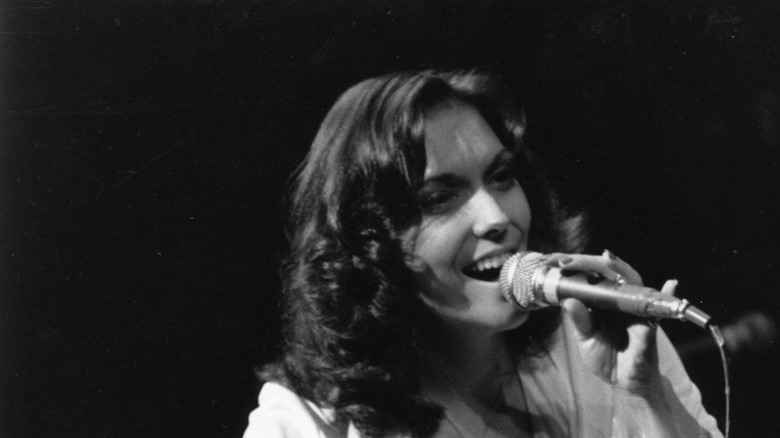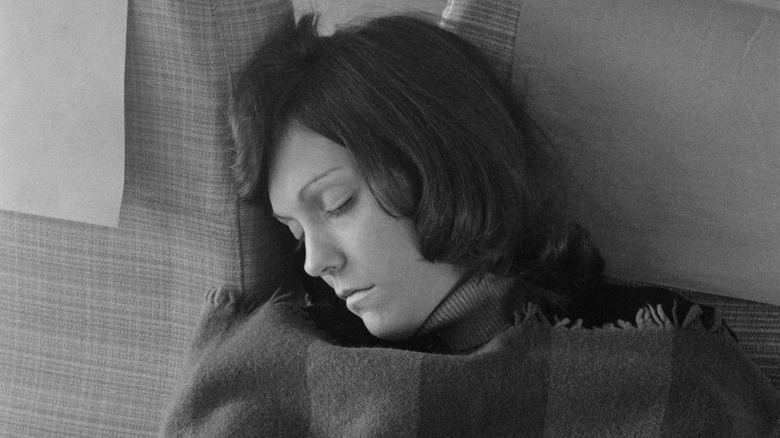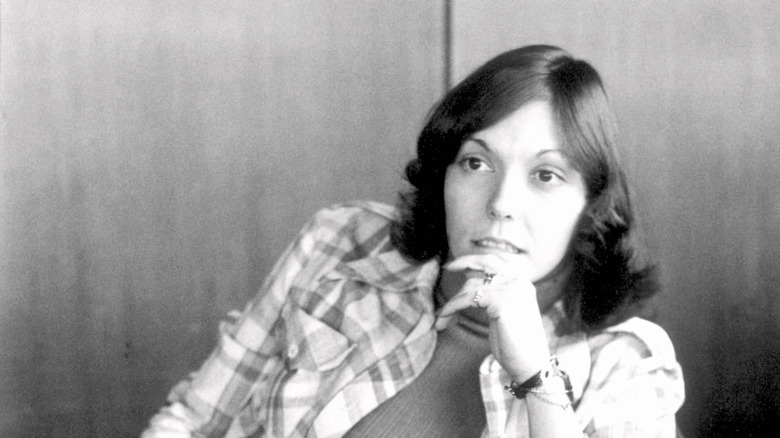Tragic Details About Karen Carpenter's Last Days
On the morning of February 4, 1983, Karen Carpenter woke up for the last time. The Grammy-winning pop singer had risen to fame with her brother, Richard, as the duo the Carpenters. She had stayed the night at her parent's house in Downey, California after a day of shopping for a new washer-dryer. She went down stairs to the kitchen, turned on the coffee pot and went back to her childhood bedroom. She opened the sliding door to her walk-in closet and then collapsed. A few minutes later, her mother, Agnes, found Carpenter unresponsive, her eyes opened and rolled back into her head. She was pronounced dead at a nearby hospital less than two hours later. Carpenter was 32.
The news of Karen Carpenter's tragic and sudden death was a shock to her friends and family who believed she had finally gotten her anorexia nervosa and bulimia under control. But after years of extreme dieting and purging and the overuse of the drug ipecac, which induces vomiting, her heart gave out. In the days before her death, Carpenter seemed happy and healthy. She was eating, making plans for a new Carpenters' tour and album, and was finalizing her divorce.
The rise and fall of Karen Carpenter
Karen Carpenter, who was born in 1950, was still a teenager when she began performing with her older brother Richard, playing drums and occasionally singing. In 1969, the duo signed with A & M Records, released their first album, "Ticket to Ride," and began their meteoric rise to the top of the charts. But complex family dynamics and an unhappiness with her weight led Carpenter down a path as dramatic as the Carpenters' success. By 1975, her weight had plummeted to 91 pounds on her 5-foot-4 frame, and she was hospitalized after a grueling two-year tour and over-dieting left her exhausted. Carpenter continued to experience eating disorders even as she had a whirlwind romance that turned into a disastrous, short-lived marriage to property developer Tom Burris.
In January 1982, Carpenterflew to New York City seeking the help of psychotherapist Steven Levenkron, who specialized in eating disorders. She was 77 pounds, taking 90 laxatives in one go, and also misusing synthroid, a thyroid medicine that speeds up the body's metabolism. After another hospitalization, she regained weight and seemed to have turned a corner for the better. Against Levenkron's advice, she returned to California. Carpenter weighed 100 pounds and was excited to get back into the studio. She was also in the midst of finalizing her divorce. But then she secretly began taking ipecac to purge her food, which had a side effect of damaging her heart.
Signs of renewed trouble
Even as Karen Carpenter appeared to have made positive changes, there were signs that all wasn't well in her tragic life. At a January 14, 1983 dinner out with her brother Richard, she looked unwell mid-meal and hurried to the bathroom, behavior she later shrugged off as nothing. Two weeks later, on January 27, Carpenter's house cleaner, Florine Ellie, found her collapsed on the floor of the bedroom closet of the pop star's Los Angeles condo. "Karen, is there something wrong?" she asked. "No, I am just so tired," Carpenter told her (via "Little Girl Blue: The Life of Karen Carpenter").
Even as Ellie helped her into bed, Carpenter told her there was nothing wrong. Ellie checked in the next day. Again, the singer brushed off her concern. The last few days of Carpenter's life included another dinner at a restaurant on Sunset Boulevard with Richard, and she seemed better and ate well. It was the last time Richard saw her alive. She later finalized plans to visit New York and be with a friend as she gave birth, and the day before she died, she ate out with her parents. By the next morning, Carpenter was dead. Her autopsy revealed that her ipecac use, in combination with an already weakened heart from years of over-dieting, had caused her death. It cut short the career of a singer whose reputation has only grown since her untimely passing.
If you need help with an eating disorder, or know someone who does, help is available. Visit the National Eating Disorders Association website or contact NEDA's Live Helpline at 1-800-931-2237. You can also receive 24/7 Crisis Support via text (send NEDA to 741-741).


